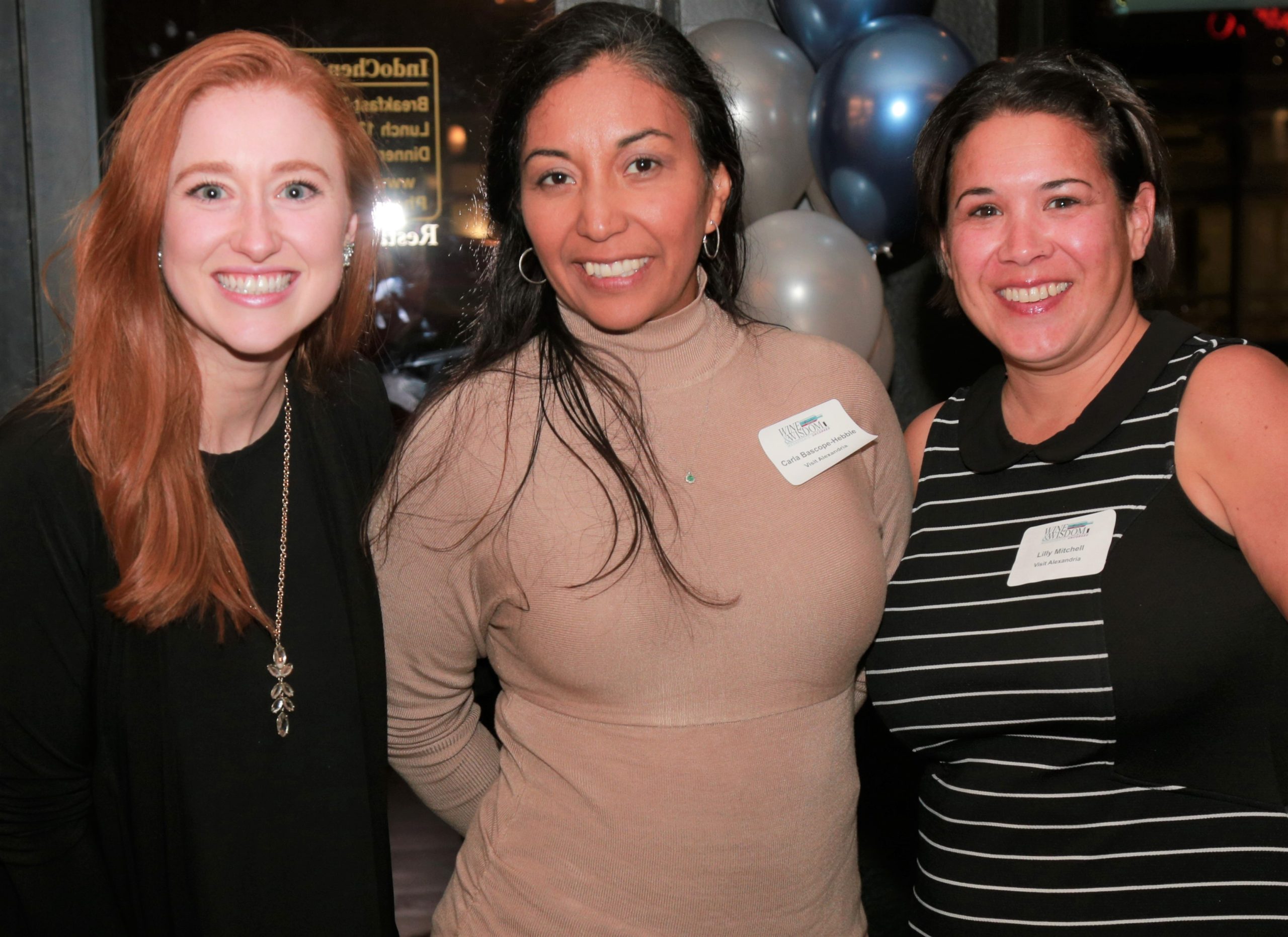Building Momentum’s Brad Halsey and Allen Brooks on the basics of business amidst a pandemic.
This interview is part of Visit Alexandria’s series, Leadership Insights During COVID-19: How 7 Alexandria Leaders Navigated a Global Crisis. Read more interviews in this series here. Building Momentum is a member of The Leadership Collection at Alexandria™:
Brad Halsey
CEO and Co-Founder, Building Momentum
Allen Brooks
Chief Creative Officer, Building Momentum
Q: What leadership principles did you practice that led you to where you are in your professional career?
Brad
A: Here are some leadership styles I learned and three tenants that work:
- Be good at your job.
- Lead by example. Everything else is just a bonus.
- Have true human empathy for what people are going through. Everything else is just icing on the cake.
Allen
A: Brad and I had different backgrounds but diving into empathy is incredibly important, as is seeing your employees as people first. Our products are our people. We want them to be better, and we want them to carry themselves better. We want them to feel safe and loved by the organization. Empathy is how we run the company.
Q: When you were a child, what did you dream of being as an adult? Did you always want to be in a leadership role?
Brad
A: I wanted to be lead guitarist in a rock band and then found myself in leadership roles accidentally. I remember always running for leadership roles throughout school.
Allen
A: I wanted to be an actor, but like Brad, I also wanted to be in a collaborative art form. We have found ourselves or have been drawn to finding people that meld together within a collaborative outlook.
Q: What principles did you follow to lead your team, stakeholders, clients and members during the pandemic to keep them engaged, motivated and feeling secure?
Brad
A: We went back to what we are good at. Solving problems and crises were some of the foundations that this organization was built on, but the crisis was in our backyard this time. We started the UVC Robot and didn’t know where that was going to take us, but we activated everyone and pivoted hard into the crisis. The first take of our robot was not great but the following week, we improved and found ourselves branching out in other ways. We had everyone’s muscle memory going, doing what we do to solve problems.
Allen
A: How we responded early on allowed us to adjust and support our people. This leads back to Brad showing by example and taking safety into account. Take the early stages of the pandemic, for example. Some problem-solving engineers needed to be in the office, while others, like myself, were staying home, engaged in our project but at a different level. It was certainly not easy to not be in the middle of the problem solving, but we played different roles in order to complete our tasks. How we responded at the beginning has continued throughout the year to help us adjust and support our team.
Q: What new skills and lessons did you learn during the pandemic? What will you implement as we move toward recovery?
Brad
A: The biggest lesson I learned was that I needed to step back to look at everything from a bird’s-eye view. This gave us an opportunity to look at our company structure as a whole, and I am going to continue to step back and evaluate if we are leading and driving in the right direction. The pandemic really gave me a chance to focus on the basics of business.
Allen
A: Rediscovering how to communicate with the team. We came back to work and recognized how to communicate in a more constructive way. This something is we need to continue to focus on.
We learned a lesson that leadership by example is so important. The pandemic gave us a chance to step back and share with our team why we are making what we are making.
One thing I want to note about leadership is the importance of seeing our own team rise above the challenge. The re-structuring of our company and leading by example have been important in allowing our team to grow with us. Tom Sullivan single-handily rose to the challenge to find solutions for the company that helped us survive the pandemic. Tom’s promotion speaks to Brad’s desire to elevate others in our company. At a leadership level, is so important to elevate your team and allow those ideas to formulate.
Q: Benjamin Franklin once said, “Well done is better than well said.” Is there a certain historical leader or phrase/quote/mantra that you relate to?
Brad
A: The one that sticks out in my mind is from the poem “If” by Rudyard Kipling. “If you can meet with Triumph and Disaster…and treat those two impostors just the same.” That is how we all operate. Another line we stand by at Building Momentum is that diversity is not a “nice to have” but a MUST have. It is something you need to have to be able to solve hard problems and understand different perspectives.
Q: How would you describe your leadership style and what did you have to amend during the pandemic crisis?
Brad
A: I don’t have a particular style, but I realize I parent. In parenting, you have to be able to let your kids grow up and make mistakes. You want your kids to grow up and fail and learn from those failures just as they would successes. I want someone to take my job so I can be a rock musician. My leadership style is based on patience, nurturing and second chances. It is not about solving for profit, but about wanting my staff to grow and succeed.
Allen
A: We are not building the company by a textbook. The traditional metaphors of most companies are very different from our values. All we are trying to do is make our people as awesome as possible and to make an impact on our community.
Q: How do you personally recharge and let go of stress?
Brad
A: I write music and box. So I have one hobby releasing creativity and the other releasing stress through exercise.
Allen
A: I run and play video games to allow myself to get lost in narratives and step into places I can’t be in right now.







